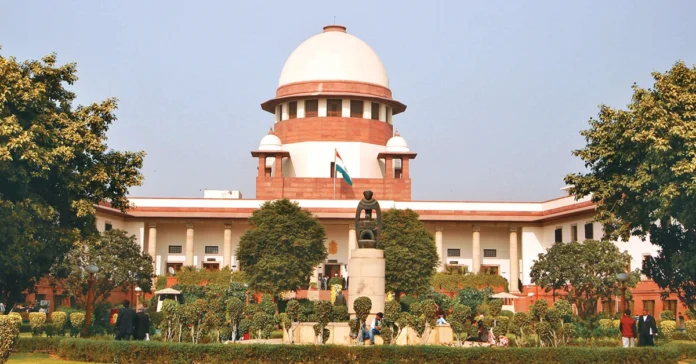The Supreme Court has observed that cooperating with the investigation did not mean the accused had to necessarily admit his guilt in a case.
The Bench of Justice Bhushan R Gavai and Justice KV Viswanathan recently held that the prosecution must discharge its burden of proof beyond a reasonable doubt. It could not expect the accused to provide evidence to incriminate themselves, added the Court.
The Apex Court made these observations on Tuesday while granting anticipatory bail to Govind Singh Yadav, an accused in a 2022 cheating and forgery case, whose anticipatory bail was sought to be contested by the prosecution on the ground that he did not produce the documents required during investigation.
As per the case, the first information report (FIR) accused Yadav of impersonating a government official and visiting the complainant’s residence accompanied by a police constable. During this visit, he allegedly took photographs of certain original documents under the pretense of official authority.
Subsequently, the complainant, who filed the private complaint leading to the registration of the FIR, contended that Yadav falsely claimed governmental authority to gain access to these documents and used them for fraudulent purposes.
Yadav sought anticipatory bail in the case on the grounds that the accusations were fabricated and that he had cooperated with the investigation to the extent required by law.
The Bench granted pre-arrest bail to the accused on the grounds that Yadav had appeared before the investigators and complied with its earlier interim protection order from September 9.
The observation aligned with the constitutional right against self-incrimination guaranteed under Article 20(3) of the Indian Constitution. As per Article 20 (3), no individual accused of an offence could be compelled to be a witness against themselves.
In Nandini Satpathy Vs PL Dani (1978), the Apex Court had ruled that silence or refusal to answer during questioning could not be construed as evidence of guilt. The ban on self-accusation and the right to silence, while an investigation or trial was underway, went beyond the case and protected the accused in regard to other offences pending or imminent, which might deter him from voluntary disclosure of criminatory matter, it added.
In Selvi Vs State of Karnataka (2010), the top court of the country ruled that narco-analysis, polygraph tests and brain-mapping procedures conducted without consent violated Article 20(3).
It stressed on the importance of personal autonomy in aspects such as the choice between remaining silent and speaking. An individual’s decision to make a statement was the product of a private choice and there should be no scope for any other individual to interfere with such autonomy, especially in circumstances where the person faced exposure to criminal charges or penalties, it added.


